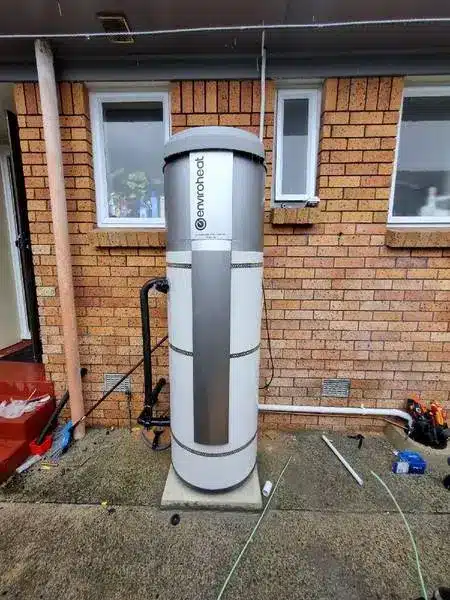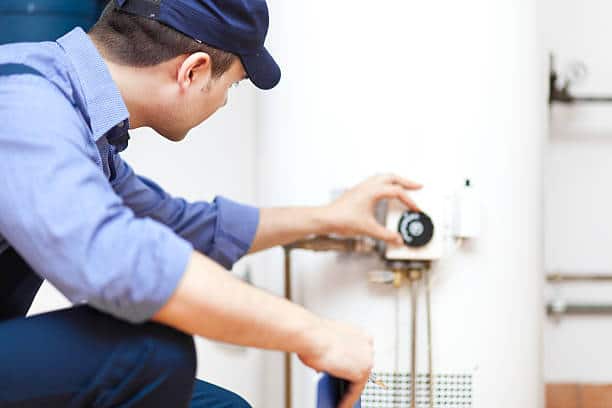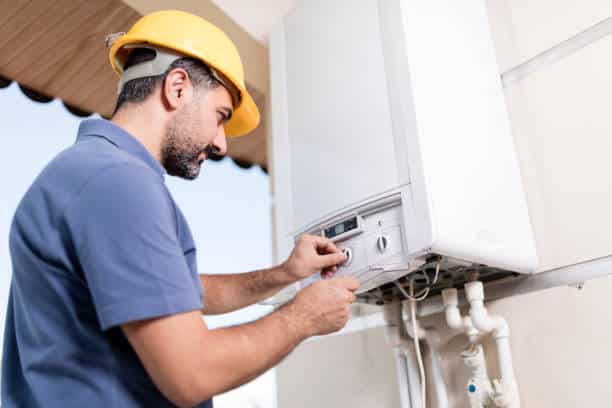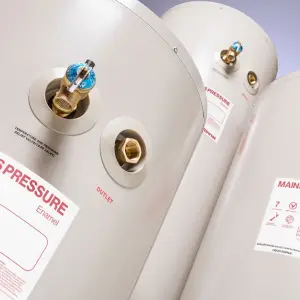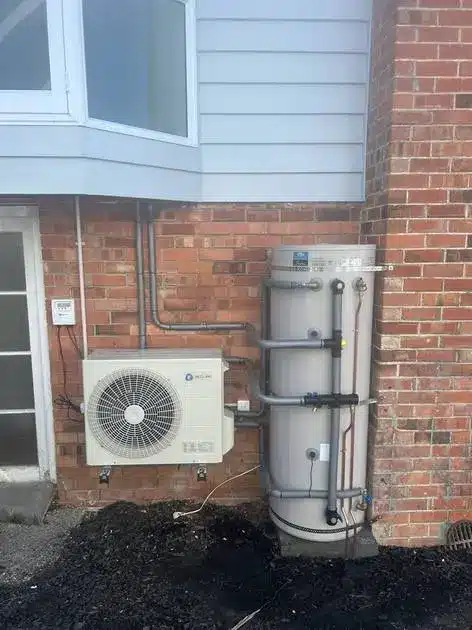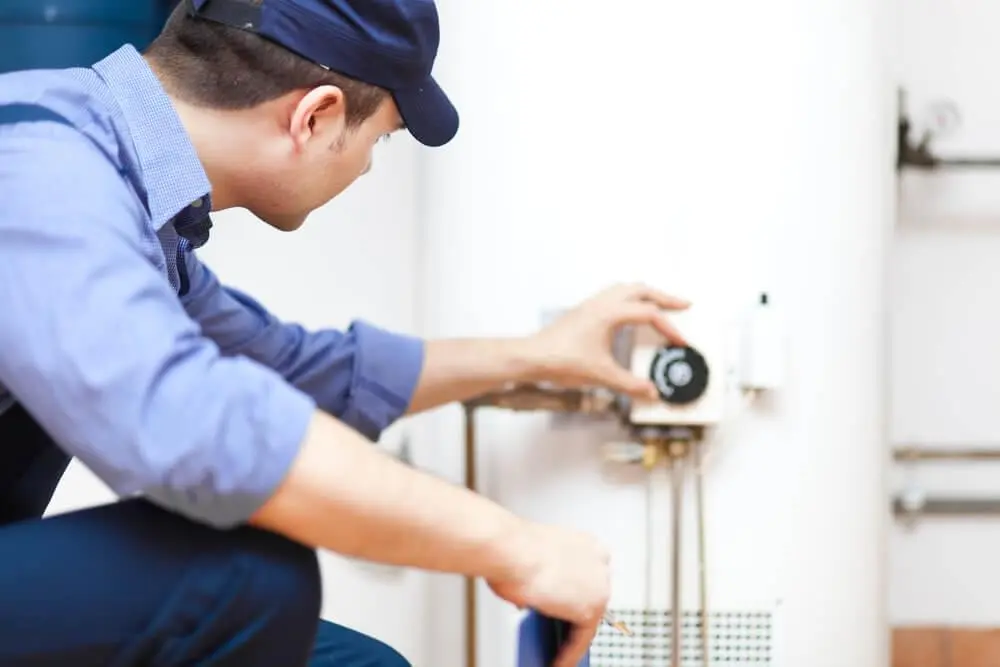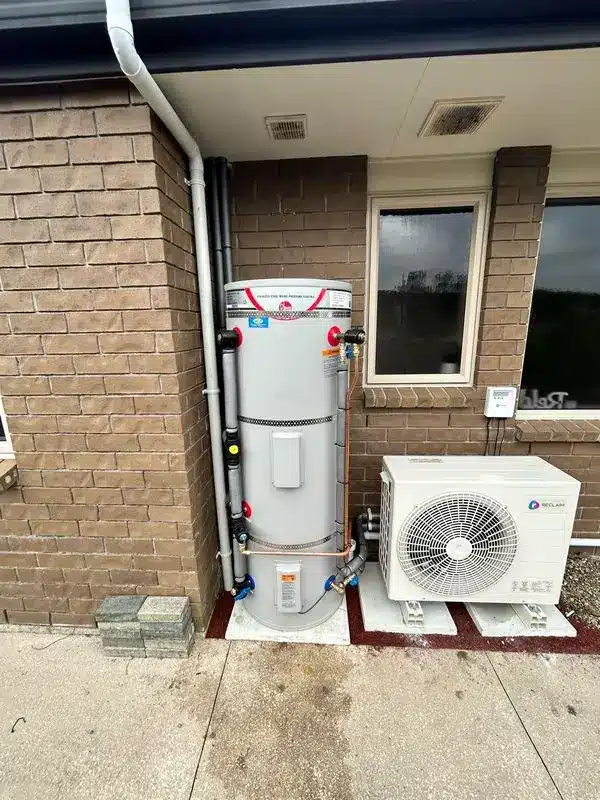Upfront Cost Comparison
When installing a new system or upgrading an existing one, the initial purchase and installation cost is a major factor. Here’s how heat pumps and electric hot water cylinders compare in upfront pricing for a typical Kiwi home:
Heat Pump Hot Water System – $3,000 to $5,500 installed.
Electric Hot Water Cylinder (185L to 250L) – $1,200 to $1,800 installed
Clearly electric cylinders carry lower upfront costs of around 50-66% less than installing a heat pump system. However cheaper initial pricing doesn’t tell the whole story. Operating performance and energy efficiency results play a big role in total lifetime costs and return on investment which we’ll analyse next.
Operating Cost and Efficiency Comparison
While electric cylinders are substantially cheaper to purchase upfront, heat pump systems can save much more on your power bill over time with superior energy efficiency:
Heat Pump Hot Water COP (efficiency rating): 3 to 5
Extracts 3-5 units of heat energy per unit of electricity
Electric Hot Water Cylinder efficiency: 1
Converts 1 unit of electrical energy to 1 unit of heat.
This means heat pump hot water units are 300% to 500% more efficient at harnessing heat energy from their surroundings. This translates into lower power bills, faster payback, and more savings over their lifespan.
Exactly how much can Kiwis save on hot water costs by switching to a heat pump system? Here are some estimates:
The average Kiwi household spends $620 per year to heat water with electric cylinders.
Installing a heat pump hot water system instead can save families approximately $300+ per year on water heating.
Based on average savings data, a $4,000 heat pump hot water system can pay itself off in under 5 years through electricity bill savings – then continue saving homeowners money for another 10+ years before requiring any maintenance or part replacements.
Pretty compelling savings potential! Combined with additional discounts and rebates outlined next, heat pumps deliver highly attractive return on investment metrics for most Kiwi homes versus maintaining old inefficient electric cylinders.
Government Subsidies and Power Company Rebates
To incentivise citizens to upgrade to more energy efficient heating and hot water technology, the New Zealand government and certain power companies offer additional rebates and subsidies on top of electricity bill savings:
EECA Warmer Kiwi Homes Heat Pump Subsidy – Up to $3,000 rebate for landlords, low-income households
Regional council subsidies – Some offer $500 to $800 rebates for heat pump installations
Power company special discounts specifically on heat pump hot water units
These extra rebates and discounts ranging from $500 up to $3,050 in some cases amplify the value proposition for switching from electric to heat pump water heating systems.
In addition, removing and recycling old cylinders through public or private waste collection services can earn Kiwis $20 to $50 per unit. So, between lower power bills, government/power company rebates, and scrap metal recycling payments, households stand to save $5,000+ over 5 years in most cases by upgrading to efficient heat pump hot water technology.
Environmental Impact Factors
With climate change and carbon emissions reduction also weighing on the minds of environmentally conscious Kiwis, the energy source and greenhouse gas footprint of heating systems should be considered alongside operating costs.
Here’s how heat pumps and electric hot water compare in environmental impact:
Electric hot water units rely on fossil fuels like gas, coal, or diesel burned in power stations to generate the electricity they consume. This indirectly produces carbon emissions.
Most heat pumps use electricity as well but are 3-5x more efficient, resulting in lower emissions. Some heat pumps leveraging outside air or geothermal heat sources release zero direct emissions.
So by cutting total electricity consumption versus electric cylinders, heat pump systems also lower your household’s carbon footprint. Government subsidies offered for heat pumps also partly aim to incentivise citizens to adopt lower-emission technologies.
Heat Pump vs Electric Hot Water Cylinders: Conclusions
Based on our analysis of upfront costs, operating costs and efficiency, available subsidies, and environmental factors – installing a heat pump system clearly delivers superior financial return and lower carbon emissions for the majority Kiwi households.
With heat pump hot water units able to save the average family over $300 per year on water heating bills, they more than pay back their higher initial purchase price within 5 years in most homes. Ongoing savings and government rebates then continue piling up for another 10+ years before parts need replacing.
Meanwhile, heat pumps are vastly more efficient at harvesting free heat using small amounts of electricity than conventional electric cylinders. This translates into lower energy consumption and power bills. Environmentally conscious Kiwis also benefit from the reduced carbon dioxide emissions of efficient heat pump technology.
While heat pumps do cost 50-100% more upfront, their extensive electricity savings through superior efficiency, extra government subsidies, faster payback, and lower carbon footprint make investing in these systems worthwhile for most homeowners concerned about rising power bills and New Zealand’s emissions reduction targets. Just be sure to leverage all available regional council and power company rebates after installing your new system!
Use our contact us page to reach us and we will be more than happy to discuss your hot water situation. Or give us a call on 0800 497658.
At Hot Water Solutions all we do is hot water!

